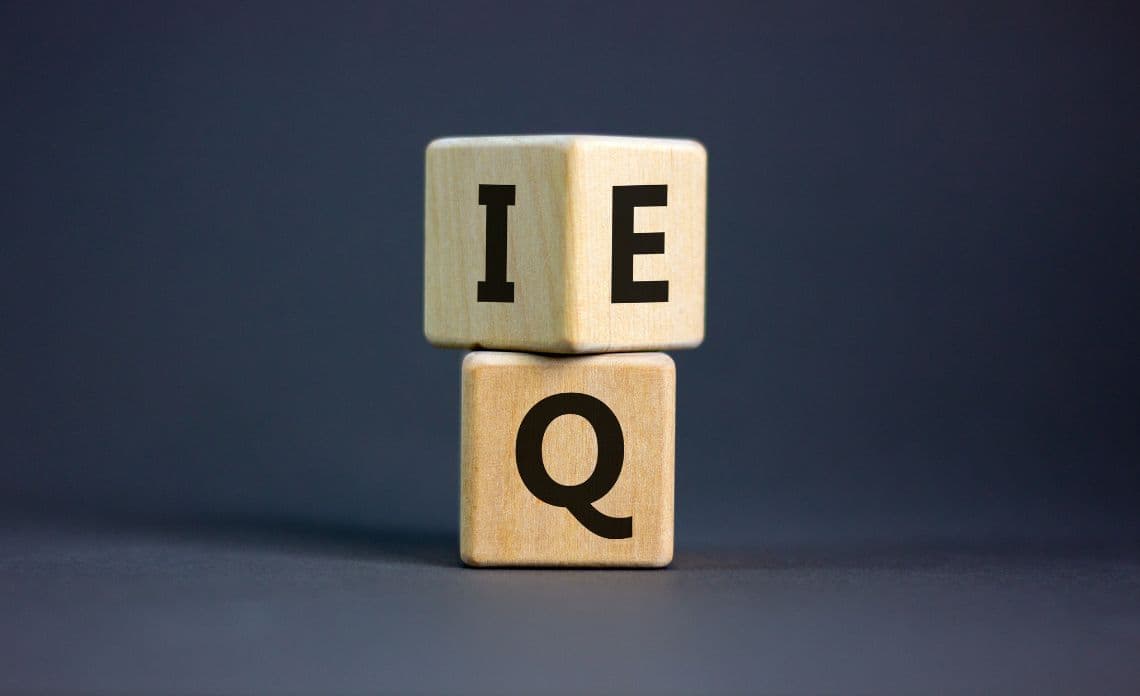
The 4 Domains of Emotional Intelligence by Daniel Goleman
Daniel Goleman
Director of Daniel Goleman Emotional Intelligence

- duration
- 8 min
- Average Score
- 80%
- Stars
- 5
The Power of Emotional Intelligence in Leadership and Sales
What is Emotional Intelligence?
Emotional intelligence (EI) is more than just understanding emotions—it’s about using that awareness to manage behavior, build relationships, and drive success. According to Daniel Goleman, the author of Emotional Intelligence, EI consists of four key domains:
- Self-Awareness – Recognizing your emotions and how they impact your thoughts and actions.
- Self-Management – Controlling emotions to stay focused and positive.
- Social Awareness – Understanding others’ emotions and perspectives.
- Relationship Management – Using emotional intelligence to influence, guide, and inspire.
Unlike IQ, which remains mostly stable throughout life, emotional intelligence is learnable and can be developed at any stage.
Why Emotional Intelligence is Crucial in Leadership
The Harvard Business Review has repeatedly emphasized that emotional intelligence is the foundation of effective leadership. Research shows that the best leaders aren’t just knowledgeable—they excel in self-awareness, empathy, and communication.
Key Emotional Intelligence Traits of Great Leaders
- They stay composed under pressure. Managing emotions ensures better decision-making, especially in high-stakes situations.
- They inspire and motivate teams. Strong leaders build trust by genuinely caring about their team’s well-being.
- They handle conflicts with ease. Instead of reacting impulsively, they listen, mediate, and create solutions that work for everyone.
- They develop future leaders. The best leaders mentor and coach others, helping them grow into leadership roles.
How Emotional Intelligence Transforms Sales Success
Sales is not just about persuasion—it’s about understanding people. Emotional intelligence helps sales professionals connect with prospects, navigate objections, and close deals more effectively.
How Emotional Intelligence Helps Sales Professionals:
1. Self-Awareness: The Secret to Better Sales ConversationsSelf-awareness helps sales reps recognize their emotional triggers and adjust their approach in real time. For example, a rep aware of their frustration after a rejection can reset their mindset before the next call.
Pro tip: Before a sales call, take a moment to check in with your emotions. How are you feeling? How could that impact your conversation?2. Self-Management: Handling Rejections and Staying MotivatedRejection is a part of sales, but emotionally intelligent reps don’t let it derail them. They reframe challenges, stay positive, and keep their focus on long-term goals.
Pro tip: Instead of seeing rejection as failure, view it as feedback. What can you learn? How can you improve for the next conversation?3. Social Awareness: Understanding Prospects' Needs and MotivationsSocial awareness, particularly cognitive empathy, allows sales reps to understand how prospects think. Knowing their decision-making process helps reps craft more persuasive messages.
Pro tip: Pay attention to the language your prospect uses. Are they focused on risk reduction, efficiency, or innovation? Adapt your pitch accordingly.4. Relationship Management: The Key to Long-Term Sales SuccessClosing a deal is just the beginning. Successful sales reps build lasting relationships that lead to referrals and repeat business.
Pro tip: Instead of pushing for a quick close, focus on providing long-term value. Build trust, and the sales will follow.The Three Types of Empathy in Sales and Leadership
Daniel Goleman highlights three types of empathy, all crucial in sales and leadership:
1. Cognitive Empathy – Understanding how someone thinks
- Helps sales reps tailor messaging based on how prospects perceive their problems.
- Essential for leaders to communicate effectively with different personalities.
2. Emotional Empathy – Feeling what the other person feels
- Allows sales reps to build rapport and trust with clients.
- Helps leaders connect with and support their teams on a deeper level.
3. Empathic Concern – Caring about others’ well-being
- Builds trust in sales relationships by showing genuine care.
- Strengthens team morale and engagement in leadership roles.
Final Thoughts: Emotional Intelligence is the Key to Success
Whether you're a sales professional closing deals or a leader guiding a team, emotional intelligence is the most valuable skill you can develop. It improves decision-making, strengthens relationships, and creates lasting success.
Want to improve your emotional intelligence? Start by practicing self-awareness, actively listening to others, and managing your emotions effectively.
How Triple Session works
Training, Testing, & Feedback
Triple Session's proven formula accelerates your sales performance through consistent, organized practice, backed by measurable results.

Bite-Sized Knowledge
Our expert-led video sessions simplify complex sales concepts into easy-to-digest 5-15 minute videos for better retention.

Test Your Understanding
After each session, there will be a quiz to test your understanding and help you improve on any areas that need more attention.

Evaluate and Grow
Get progress snapshots after each quiz to track your improvements and achieve your sales mastery goals.